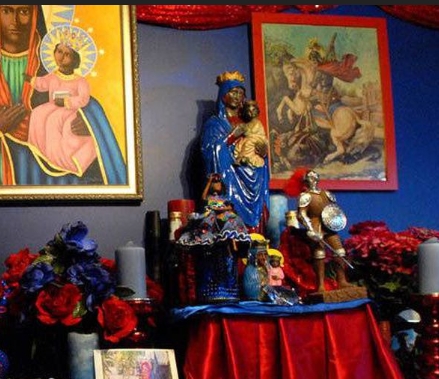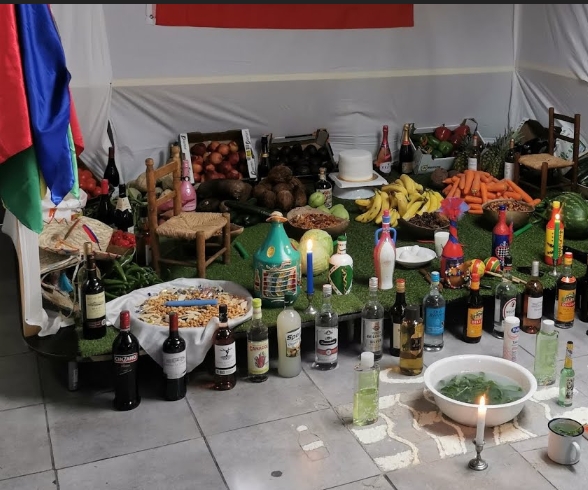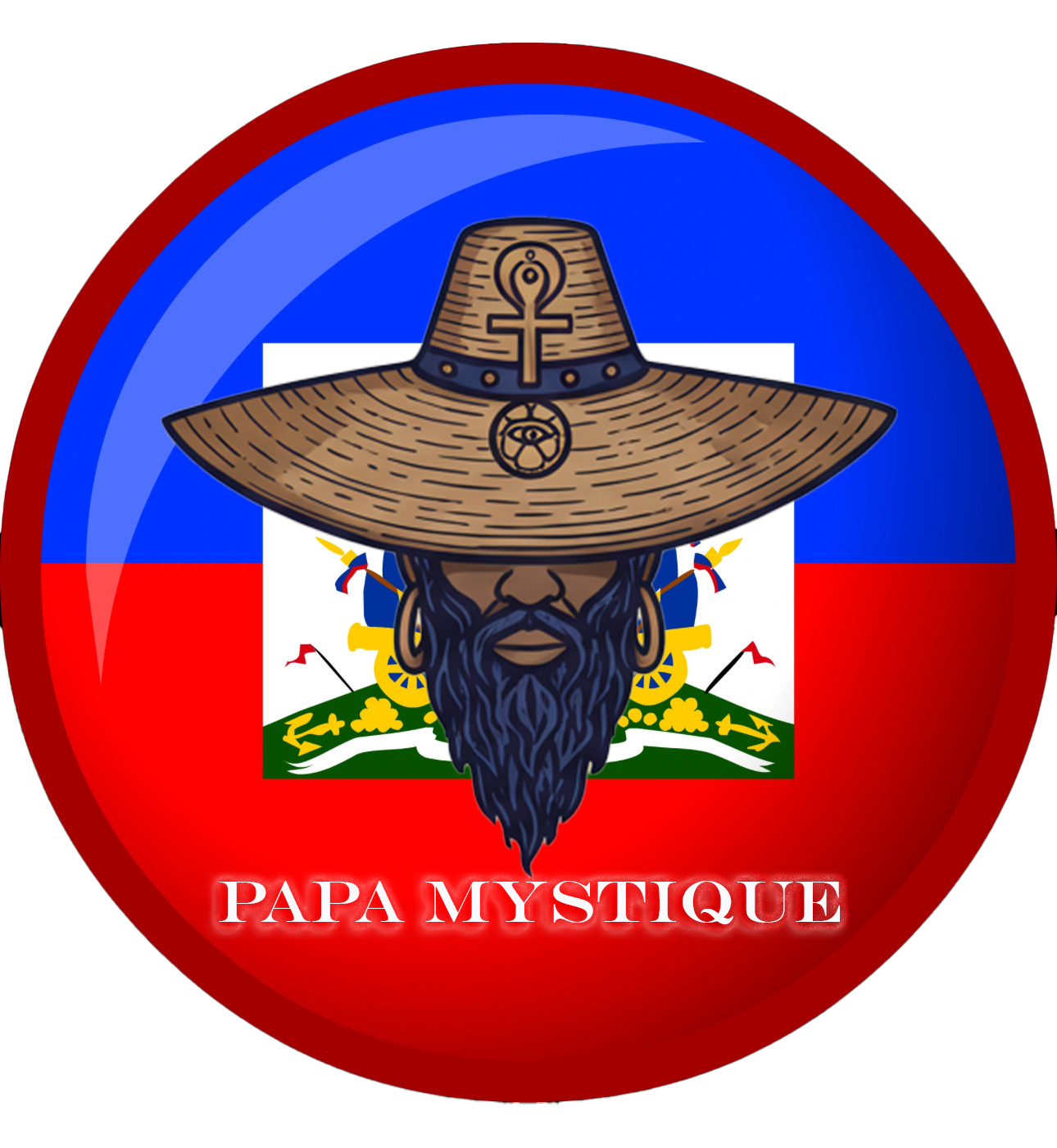Vodou altars, known as pe, are sacred spaces that serve as a bridge between the physical and spiritual worlds. These altars are more than just decorative displays; they are places of deep reverence where practitioners connect with the Lwa, ancestors, and divine forces. Each altar is unique, carefully arranged with objects, images, and symbols that reflect the spirit being honored. Candles, statues, and sacred tools are placed with intention, creating a spiritual focal point that allows energy to flow between realms. Through these altars, Vodouists maintain an ongoing relationship with the unseen world, seeking guidance, protection, and blessings.
The altar is not just a place of offerings; it is where the past, present, and future meet in sacred harmony.
Offerings play a crucial role in Vodou rituals, acting as a form of reciprocity between humans and the spirits. Each Lwa has specific preferences—such as coffee and rum for Papa Legba, sweet cakes and perfumes for Erzulie Freda, or cigars and roasted maize for Baron Samedi. These gifts are not simply material items; they are expressions of respect, devotion, and gratitude. Offerings serve as a way to nourish the spirits, reinforcing the bond between the practitioner and the divine. When given with sincerity, they invite the Lwa’s presence, ensuring harmony and spiritual balance.


Beyond individual practice, Vodou altars and offerings have a powerful cultural significance within Haitian communities. They reflect the resilience, history, and traditions passed down through generations. In times of hardship, Vodou has provided spiritual strength and unity, with altars serving as centers for communal gatherings, ceremonies, and celebrations. Whether in a personal home or a larger temple setting, these sacred spaces keep the ancestral and spiritual lineage alive, preserving a rich cultural heritage that continues to thrive.
Final Reflections and Key Takeaways
Understanding Vodou altars and offerings requires more than observation—it calls for an appreciation of their deeper meaning. They are not merely rituals but acts of devotion that affirm the interconnectedness of life, the spirits, and the ancestors. To engage with them is to honor a spiritual tradition that has withstood centuries of adversity, embodying faith, resilience, and divine connection.

Leave a Reply